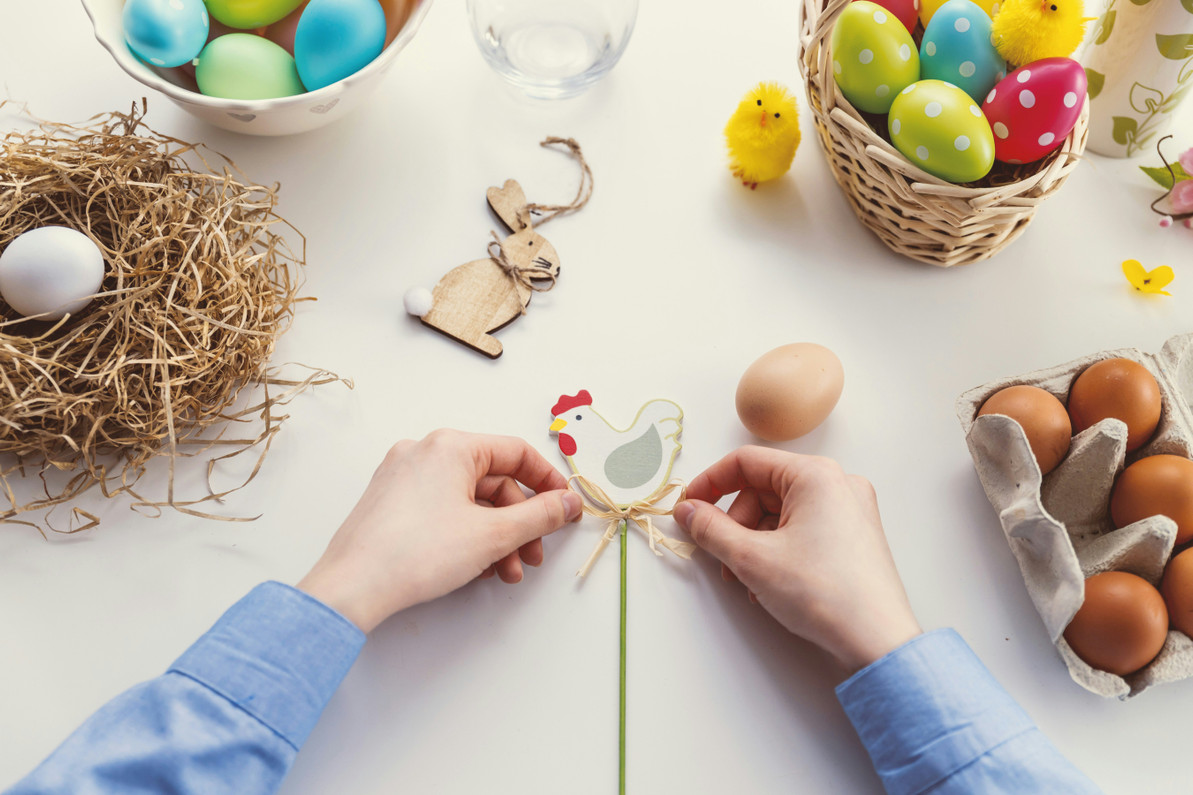Celebrating Easter Sustainably
With Easter quickly approaching, holiday celebrations are probably on your mind. This is a great time to ask yourself how sustainable your celebrations really are! Holidays like Easter should be times to relax and enjoy yourself. Whether you’re planning an all-out celebration or just enjoying the time off, committing to making sustainable choices during Easter doesn’t have to add extra stress. Making small changes to how you celebrate can actually make the day less stressful, and better for the environment.
Candy
When you think about Easter, you likely think about candy. From the iconic chocolate bunnies to seasonally themed treats, the holiday is major for the candy industry. In fact, the National Confectioners Association reports that confectionary sales during the Easter season will surpass $5 billion. This figure is for 2024 alone! 92% of all Americans plan to include chocolate and candy in their Easter celebrations. If you’re part of that 92%, think about the types of candy you’re buying.
Plant-based candy can have a lesser impact on the environment. With the recent rise in popularity of plant-based foods, choosing a more environmentally friendly option doesn’t have to come at the expense of eating your favorite candies! Unreal Snacks is just one of many popular brands that sells exclusively vegan candy. They can be found in many grocery stores, including Walmart, and sell products like vegan peanut butter cups and chocolate gems.
If your loyalty lies with a specific brand, there are still ways to make more sustainable choices! More and more brands are offering plant-based versions of their most iconic products. Hershey’s, Reese’s, and Lindt are all incredibly popular brands for Easter candy, and all of them sell plant-based versions of fan favorites. There are also plenty of treats that you may not realize are plant-based! Candies like Sour Patch Kids, Airheads, and Skittles are all made without any direct animal products.
Whether you’re buying plant-based snacks or snacks with animal products, try being mindful of how many candies you buy with cocoa. The cocoa industry contributes to extreme deforestation and loss of natural habitats for wildlife. That doesn’t mean you need to cut cocoa out entirely. There are many organizations dedicated to producing cocoa more ethically and sustainably. One well-recognized certifying organization is the Rainforest Alliance. It works to protect forests by advancing regenerative farming techniques and supporting sustainable forest use and policy in more than 60 countries. Look for the frog on products to ensure that they have been certified by the Rainforest Alliance!
Regardless of the kind of candy you choose to purchase, it’s also worth looking at the packaging you choose. Individually wrapped candies can feel convenient, but can lead to dozens of pieces of trash – far more than you would produce otherwise. If you’re celebrating Easter with younger loved ones, you know that these pieces of trash can get everywhere. You’ll find them for weeks afterward. Opting to buy a bag of non-individually wrapped candy can be better for the environment and better for you.
Alternative Gifts
If you’re celebrating Easter with a loved one on the younger side, it’s easy to be tempted by all the adorable Easter-themed toys on the shelves. Consider, though, how often they'll actually use those, and for how long. If these plastic trinkets are likely to end up in a trash can, look for an alternative. You can never go wrong with a book, like the classic Peter Rabbit. Many companies also offer toys that may last longer and mean more, such as Easter-themed arts and crafts sets or accessories. Just make sure you aren’t gifting pets they may not be ready for! Research finds that around 80% of rabbits that are purchased around Easter are abandoned or die. Your intentions may be good, but animals are a long-term commitment, and when they’re released into the wild, they can devastate local ecosystems.
Are you the type of person who loves to wrap each individual gift for that additional flair? That’s okay! You can still meet the planet halfway and wrap them sustainably. Try this double-sided, recycled, recyclable, and compostable wrapping paper!
Easter Baskets
For many people, an egg hunt is an essential part of Easter, including the classic shiny plastic eggs. If you happen to be one of those people, consider instead buying plastic eggs that can be reused each year. This means avoiding the types that break easily - make sure you’re looking at reviews! A similar idea applies to baskets. When you avoid purchasing based on the trend of the year, and instead purchase a basket with a more classic design, you can reuse it indefinitely. Non-plastic baskets are also less prone to breaking. This durability is important if you plan to reuse the basket or ensure it doesn’t break while it’s being used, and of course their production and disposal is more sustainable! Investing in a reusable basket is also more affordable over time and will eliminate the stress of hunting for a new basket every year.
One key aspect of an Easter basket is the filling. These easily recognizable plastic shreds are an iconic part of the basket, but what do you do with them after? They’re not easily reusable, meaning they end up in the trash and can take decades to break down. Try opting for filling made from more natural materials, like real straw or paper, and then you can recycle or compost it after! Many brands produce paper options, including this compostable basket filler offered by Just Honest (and it comes in beautiful colors too!). Want to tie it off with a ribbon and add a bow on top? You can do that sustainably too! Try these plastic-free cotton gift bows & curling ribbon!
If you celebrate Easter, choose to take the stress off of yourself and the environment with these simple substitutions. What do you do to make holidays more sustainable? Let us know here!
Recent Posts
-
Celebrating Mother’s Day Sustainably
On Mother’s Day, everyone scrambles to find the perfect present for the woman who gave them the gift …Apr 18th 2024 -
How to Shop Slowly in a World of Fast Fashion
Whether you’re a fashion fanatic or live in sweatpants, clothing is something we all buy, own and us …Apr 6th 2024 -
Celebrating Easter Sustainably
With Easter quickly approaching, holiday celebrations are probably on your mind. This is a great tim …Mar 26th 2024




